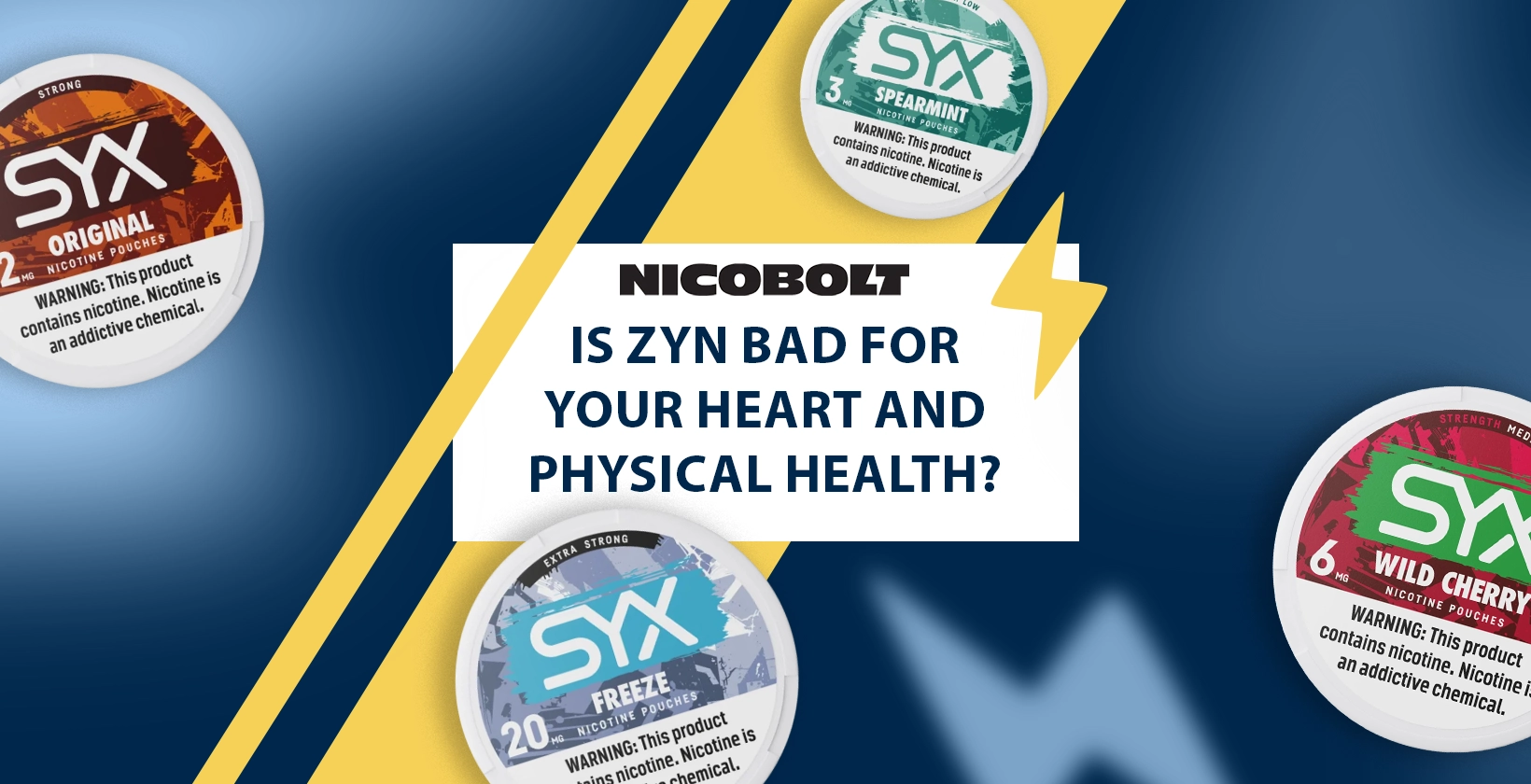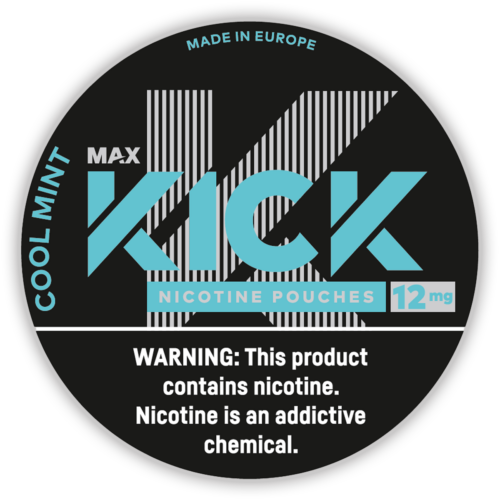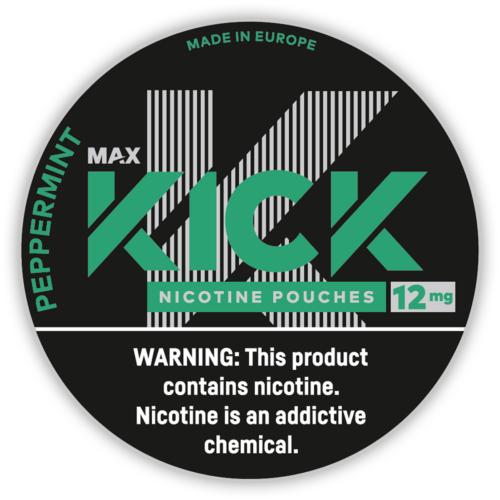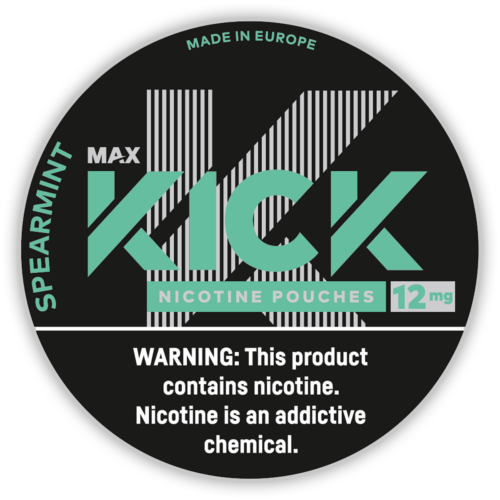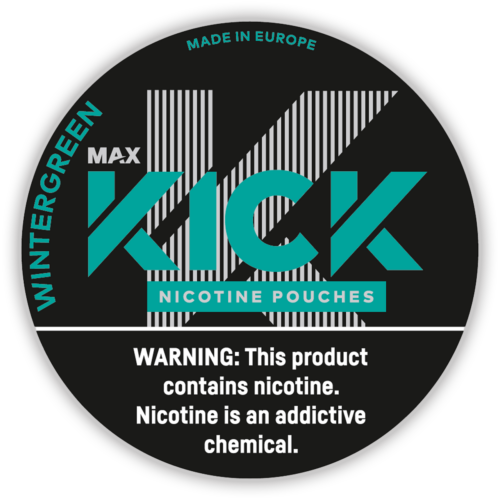Is Zyn Bad for Your Heart and Physical Health?
The question “Is ZYN bad for your heart?” is a common and important one, particularly for individuals exploring alternatives to traditional tobacco products. Smoking and chewing tobacco are unequivocally linked to severe and well-documented negative impacts on health, especially concerning the cardiovascular system.
These traditional forms of tobacco introduce a complex mixture of harmful substances into the body, including tar, carbon monoxide, heavy metals, and numerous carcinogens. These substances inflict significant damage on the heart and blood vessels, leading to a heightened risk of heart disease, stroke, and other cardiovascular complications.
In contrast, ZYN nicotine pouches offer a different approach to nicotine consumption, one that eliminates the combustion of tobacco and the associated harmful byproducts. This comprehensive guide delves into the world of ZYN Nicotine Pouches, exploring its composition, features, how it compares to traditional tobacco use, and, most importantly, directly addressing the question of its potential impact on heart health.
What Are ZYN Pouches? A Tobacco-Free Alternative to Traditional Products
ZYN distinguishes itself as a brand of nicotine pouches that are explicitly and categorically 100% tobacco-free. This is a fundamental distinction, setting ZYN apart from traditional cigarettes, chewing tobacco, and even some other nicotine-containing products like traditional snus.
Traditional tobacco products, whether smoked or chewed, contain a multitude of harmful substances in addition to nicotine. These substances, generated during the burning or curing processes, are the primary culprits behind the severe health consequences associated with tobacco use.
Tar, a sticky residue that accumulates in the lungs, carbon monoxide, a poisonous gas that reduces oxygen flow in the blood, and a host of carcinogenic chemicals are all present in varying degrees.
ZYN pouches, conversely, are formulated with a different set of ingredients: plant-based fibers derived from various sources, food-grade flavorings to provide a palatable experience, food-grade sweeteners for added taste, stabilizers to maintain the pouch’s consistency and integrity, and, of course, nicotine. Even though nicotine is never a completely harmless substance, this carefully selected composition aims to provide a nicotine experience without most of the harmful byproducts of traditional tobacco.
ZYN and the Complexities of Quitting Smoking and Chewing Tobacco
The process of quitting smoking or chewing tobacco is notoriously challenging. The addictive nature of nicotine, combined with deeply ingrained habits, behavioral patterns, and sometimes even social rituals often associated with tobacco use, creates a formidable obstacle for those seeking to break free.
Smoking, in particular, has devastating effects on both respiratory and cardiovascular health, significantly increasing the risk of developing a range of serious and life-threatening diseases. These include, but are not limited to, lung cancer, various other forms of cancer, heart disease, stroke, chronic obstructive pulmonary disease (COPD), and numerous other respiratory ailments.
The well-established and widely publicized health risks associated with traditional tobacco use are a significant public health concern globally, driving many individuals to explore and adopt alternative solutions. Oral nicotine pouches like ZYN offer a potential pathway for those looking to transition away from these deeply ingrained and harmful habits. They provide a controlled and measured source of nicotine without the harmful byproducts of combustion (as in smoking) or the direct contact with tobacco leaf (as in chewing tobacco and traditional snus).
Exploring the Features and Benefits of ZYN: A Focus on User Experience and Convenience
ZYN pouches are meticulously designed with a strong emphasis on enhancing the user experience. Their discreet format is a key feature, allowing for convenient and unobtrusive use in a wide variety of social and professional settings.
The small, pre-portioned pouches are designed to fit comfortably and discreetly between the gum and upper lip, providing a subtle and convenient way to consume nicotine without drawing unwanted attention or causing disruption to daily activities.
The wide range of flavors available is another important aspect that contributes to user satisfaction. From the familiar freshness of various mint options to the zesty tang of citrus and other more innovative and unique flavor profiles, ZYN strives to cater to a broad spectrum of taste preferences. This variety not only enhances user enjoyment but can also be a valuable tool in the transition away from the taste of traditional tobacco.
The tobacco-free nature of ZYN is a significant benefit for those seeking to completely eliminate all forms of tobacco from their routine. By removing tobacco from the product’s composition, ZYN avoids the creation of many of the harmful and carcinogenic byproducts that are inherently associated with the burning or curing of tobacco leaves.
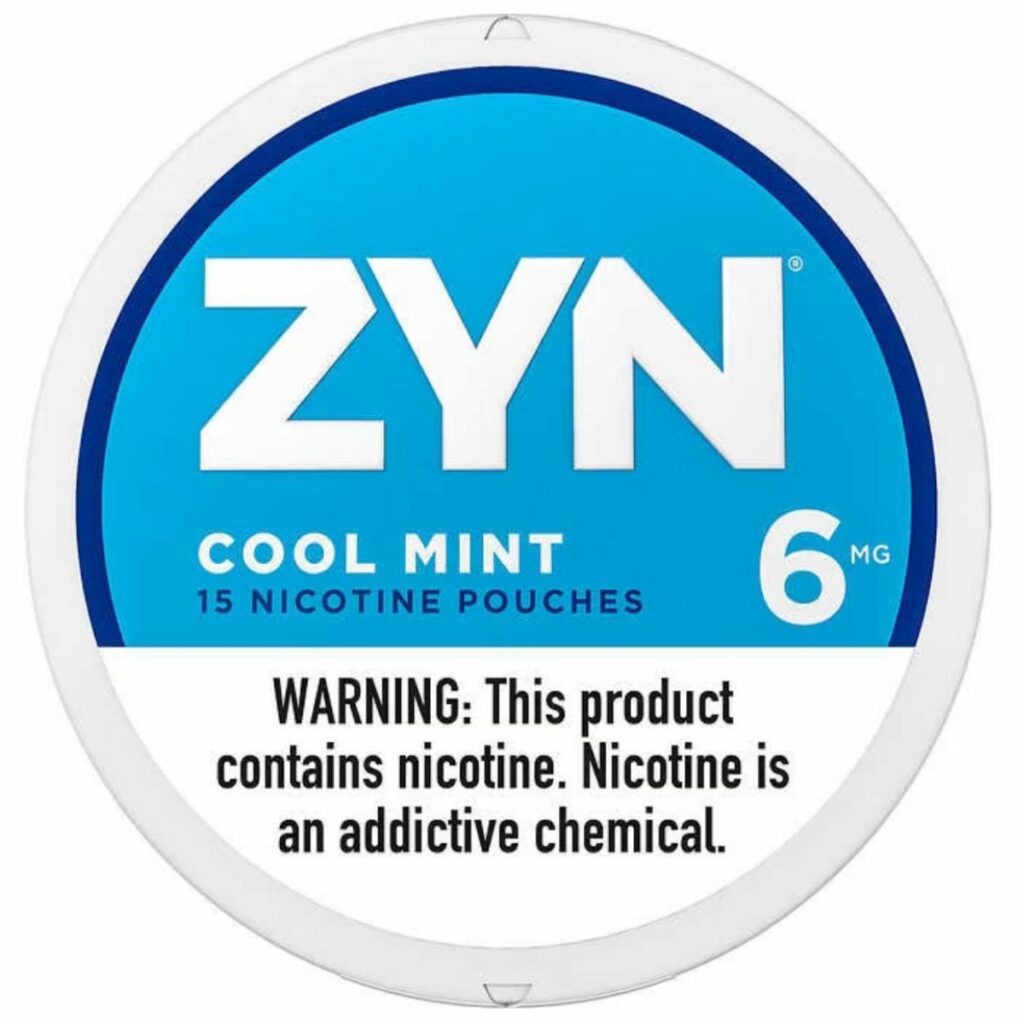
Comparing ZYN to Other Nicotine Products and the Dangers of Traditional Tobacco
When considering and evaluating alternatives to traditional tobacco products, it’s essential to compare the various nicotine delivery methods available. Compared to traditional cigarettes and chewing tobacco, ZYN eliminates the inhalation of smoke and the direct oral exposure to tobacco leaf.
Compared to traditional snus, ZYN’s completely tobacco-free composition is a crucial differentiating factor.
The method of nicotine delivery also varies significantly between these products. With ZYN pouches, nicotine is absorbed gradually and directly through the oral mucosa (the lining of the mouth), providing a different experience compared to the rapid and intense nicotine delivery experienced when smoking a cigarette. This slower and more sustained absorption can offer a smoother and more controlled release of nicotine over a longer period.
Is ZYN Bad for Your Heart? A Dedicated and Detailed Examination
This is the central question that this guide aims to address. To provide a comprehensive and correct answer, it’s vital to understand the context of traditional tobacco use and its profound impact on cardiovascular health. Smoking and chewing tobacco are established and widely recognized major risk factors for the development of heart disease, stroke, peripheral artery disease, and other serious cardiovascular problems.
These traditional forms of tobacco contain thousands of harmful chemicals, many of which directly damage the heart and blood vessels. These chemicals contribute to the buildup of plaque in the arteries (atherosclerosis), increase blood pressure, promote blood clotting, and damage the heart muscle itself.
ZYN, being a completely tobacco-free product, does not contain these same substances associated with tobacco combustion and processing. This is a crucial and significant difference. However, ZYN does contain nicotine, which is a stimulant. Nicotine is known to cause temporary increases in heart rate and blood pressure. These effects are generally transient and typically subside once the nicotine is no longer being absorbed into the bloodstream.
It’s critically important to emphasize that the cardiovascular risks associated with traditional tobacco use are substantially and significantly greater than the effects associated with nicotine alone.
Therefore, when directly addressing the question Is ZYN bad for your heart, it’s essential to place it within the proper context of traditional tobacco use. While nicotine itself can have effects on the cardiovascular system, the risks posed by smoking and chewing tobacco are orders of magnitude higher.
ZYN: A Different and Modern Approach to Nicotine Consumption
ZYN offers a distinct and modern approach to nicotine consumption compared to traditional tobacco products. It prioritizes convenience, discretion, and a completely tobacco-free experience. The availability of a wide variety of flavors and nicotine strengths allows users to customize their experience to suit their individual needs and preferences.
Understanding these key features and how ZYN differs fundamentally from traditional tobacco products is essential for individuals seeking alternatives and making informed choices.
By focusing on the product’s features, its role as a potential alternative to traditional tobacco, the importance of product quality, and directly addressing the central question of heart health within the context of traditional tobacco use, we can develop a more complete and accurate understanding of ZYN and its place in the evolving landscape of nicotine products. We hope this information provides valuable context for those exploring options to transition away from the well-established harms of smoking and chewing tobacco.

